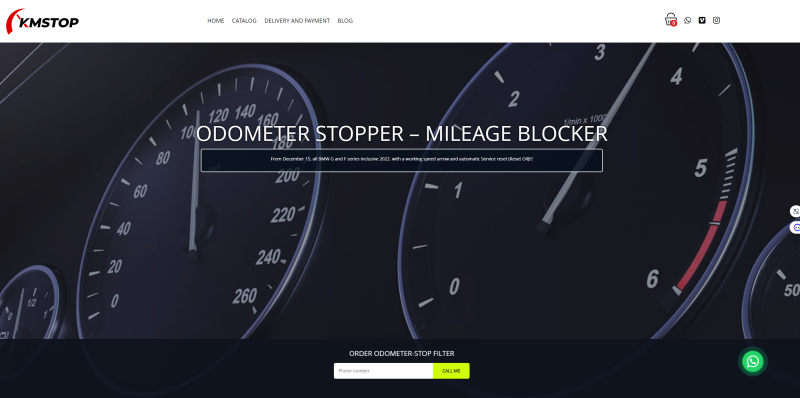The Role of Mileage Blockers in Manipulating Kilometer Stops

Mileage blockers, often discrete devices installed in vehicles, manipulate odometer readings, thereby affecting the recorded distance. Commonly referred to as “km stop” devices, these tools can freeze the km count, making it seem like a vehicle has traveled less than it actually has. This technology raises significant ethical questions and legal concerns, as it directly impacts a vehicle’s resale value, warranty validity, and insurance claims.
Employed often in scenarios where preserving vehicle value is prioritized, km stop devices are surrounded by debates on consumer honesty and automotive integrity.
What is a Mileage Blocker: Common Uses
A mileage blocker, also known as an odometer blocker or km stop device, is a small electronic tool designed to interfere with the mileage tracking system of a vehicle. Here are some common uses of mileage blockers:
- Pre-sales Demonstration: Auto dealers often use mileage blockers to keep the mileage low during test drives and demonstrations, thus preserving the car’s new condition appeal.
- Vehicle Testing: Manufacturers and mechanics may employ these devices during vehicle testing and tuning to prevent additional kilometers from registering, which could affect warranty terms.
- Leased Vehicle Management: Some users install mileage blockers on leased vehicles to avoid exceeding mileage limits set by lease agreements, thereby avoiding hefty penalties.
- Show Cars and Exhibitions: Cars used in shows or exhibitions often have mileage blockers to maintain minimal recorded distance, enhancing their value and appeal in a highly competitive market.
- Personal Use: Individuals might use them to maintain a lower mileage for resale value, though this is legally and ethically questionable.
Mileage blockers are widely utilized across different contexts, but their legality varies by region, and misuse can lead to significant legal consequences.
Consequences for vehicle warranties and insurance
Using mileage blockers can severely impact vehicle warranties and insurance policies. When a vehicle’s odometer is tampered with, it typically voids the warranty, as accurate mileage is crucial for determining service intervals and mechanical reliability. Insurance companies also rely on honest mileage reporting to assess risk and claims.
If discrepancies or tampering are discovered, especially after an accident or during a claim assessment, policyholders can face claim denials, policy cancellations, or even legal action for fraud. This jeopardizes financial security and legal standing, underscoring the high stakes involved in using km stop devices.
